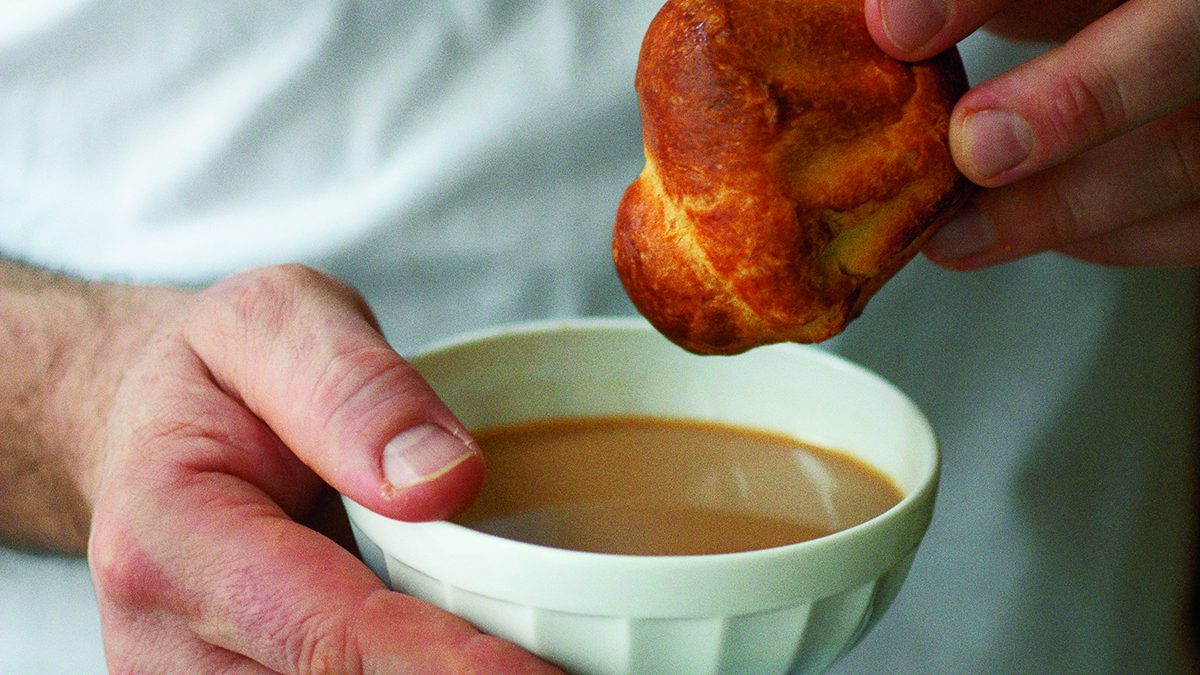Richard Bertinet on his love of baking
Award-winning Breton baker Richard Bertinet explains the origins of his passion for traditional bread-making

A free daily email with the biggest news stories of the day – and the best features from TheWeek.com
You are now subscribed
Your newsletter sign-up was successful
I fell in love with bread when I was a youngster. I was often sent to pick up the family’s baguettes in the morning. The bakery was in the middle of the estate where I grew up in Vannes in Brittany. Everything about the bakery really appealed to me. I remember standing in the queue and peering over the counter through the door to see the bakers working, loading and unloading the ovens. They seemed to have so much pride in what they were doing.
I don’t remember wanting to be anything else other than a baker. I did work experience when I was 14, which was incredibly hard work as no allowances were made for my age. But it inspired me to take up an apprenticeship with a baker when I was 15.
Over the past decade there’s been a massive growth in the UK’s interest in baking. Everyone is crazy about it! My first book, Dough, came out in 2005 and coincided with the start of this fever. But there’s still some way to go. While we all love watching baking shows and foodie mags are stuffed full of baking porn, the majority of loaves being sold in this country contain additives and improvers, or are made using high-speed processes (which are a substitute for traditional skills). If we want to continue the bread revolution we have to start reading the labels and where there are none, asking the bakers. Not all bread sold in supermarkets is bad and not all bread in small bakeries is good.
The Week
Escape your echo chamber. Get the facts behind the news, plus analysis from multiple perspectives.

Sign up for The Week's Free Newsletters
From our morning news briefing to a weekly Good News Newsletter, get the best of The Week delivered directly to your inbox.
From our morning news briefing to a weekly Good News Newsletter, get the best of The Week delivered directly to your inbox.
There is a different attitude to bread in France; you get up early and pick up a few freshly baked baguettes from the local bakery. It’s part of the French way of life. It’s part of taking things more slowly and sitting around the dining table eating, talking, drinking (though don’t try and get a plumber at short notice – they are all relaxing and having lunch!). It’s hard to imagine a French meal without a basket of bread in the middle of the table. However, even in France, the rise of the big supermarkets is beginning to threaten traditional bakeries.
One way to be certain of the quality of bread on your table is to bake your own. No one should be intimidated by baking. Anyone can make bread at home with a bit of guidance and some good-quality basic ingredients. At our cookery school we offer bread-making courses ranging from a single day to get you started to an intensive week for those considering a career in baking or wanting to master some of the more complicated breads.
Bread is as old as time itself. It’s symbolic; it’s about sharing and nurturing. I often explain to people that the word ‘companion’ is derived from the Latin words for ‘share bread’. When things are a little less busy at the school and bakery, I hope to write a book about the history of bread, to travel around the world and explore the roots of this most basic of foods in each country. If people knew more about the role bread has played in people’s lives over the centuries, I’m pretty sure they would want to buy it from a good bakery or make their own.
Richard Bertinet has written five books on baking and cooking, including Pastry (Ebury Press, £20), and Crust (Kyle Books, £16.99). bertinet.com
A free daily email with the biggest news stories of the day – and the best features from TheWeek.com
Richard Bertinet trained as a baker in Brittany, and has lived in England since 1988. He moved to Bath in 2005 to open The Bertinet Kitchen cookery school, and later The Bertinet Bakery. In 2010 he was voted BBC Food Champion of the Year.
-
 Democrats push for ICE accountability
Democrats push for ICE accountabilityFeature U.S. citizens shot and violently detained by immigration agents testify at Capitol Hill hearing
-
 The price of sporting glory
The price of sporting gloryFeature The Milan-Cortina Winter Olympics kicked off this week. Will Italy regret playing host?
-
 Fulton County: A dress rehearsal for election theft?
Fulton County: A dress rehearsal for election theft?Feature Director of National Intelligence Tulsi Gabbard is Trump's de facto ‘voter fraud’ czar